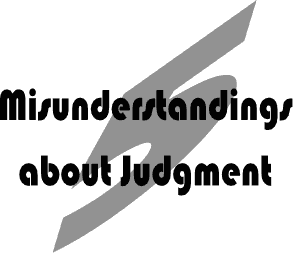
Romans: Laying a Solid Foundation
The Bible Teacher's Commentary
Paul J. Bucknell
Commentary on Romans 2:1-11
THE PROSECUTION OF MANKIND
This is the first of three parts to the BFF Romans 2:1-11 Commentary: Everyone will be prosecuted (Romans 2:1-4). The third part is the Bible Study Questions.
Romans 2:1-4 Commentary| Romans 2:5-11 Commentary
Romans 2:1-11 Handout | Podcast |Bible Study Questions
Introduction
A careful analysis must be made on how Paul goes from describing mankind in a general way (Romans 1 later part) to how man is specifically accountable for what he does (Beginning of chapter 2). This transition is evident through the use of the pronoun ‘they’ in chapter 1 to the use of the pronoun ‘you’ , second person singular, in chapter two.
Although Paul hasn’t totally excluded the Gentiles from his arguments here, he definitely does include the self-righteous Jews who thought they would be treated significantly different from the Gentiles. Paul states that though the standards might be a bit different, the process of condemnation will be the same. People will evaluated on whether they are righteous or not.
Romans 2:1-11 is divided into two sections:
- A) Everyone will be prosecuted (Romans 2:1-4).
Even the self–righteous are liable for their sins before God.
- B) Everyone will be justly prosecuted (Romans 2:5-11).
Everyone is judged according to his works. He gets what he deserves.
A) Everyone will be prosecuted (Romans 2:1-4)
Even the self–righteous are liable for their sins before God.
“Therefore you are without excuse, every man of you who passes judgment, for in that you judge another, you condemn yourself; for you who judge practice the same things. And we know that the judgment of God rightly falls upon those who practice such things.” (Romans 2:1-2).
Paul makes sure he implicates the self–righteous person in these first verses. We can sense how he traps the Jew in the way that they condemn the pagans living about them. They could generally accept God’s standard as presented in chapter 1 as God’s judgment against the Gentiles but would exclude themselves. They would say, “We are above judgment because we can so clearly see the sins of those people.” Paul responds, “You verify you are liable to the same judgment, if not a worse one, because you do know the law and practice the same things.”
This perfectly pictures the error of the self–righteousness. A self-righteous person is one who considers himself righteous in his own eyes rather than through God’s eyes. They feel as if they are righteous because they vehemently accuse others of sin. They believe their self–proclaimed appointment of judge excludes them from the possibility of being judged, the accused.
Paul cleverly challenges this deep–rooted argument by treating their ability to judge as a convincing testimony of their being held accountable to a certain standard. They cannot say they did not know. They will be held to the same standards they use in their judgment of others. If they know it is wrong for a person to do something wrong, and judge that person, will they not be held to that standard too? They then will be more harshly condemned if they are found to violate that same law with which they judged others.
In a sense, they judge themselves. They define the law, set the penalty and pass the sentence. The only problem is that they exclude themselves from the accused. They believe their special relationship with God puts them in a better light. The converse is true.
Those having a greater portion of the truth are more responsible to live according to the truth. They would need to accept the thought of a divine judgment. “The appeal to the idea of divine judgment would indeed meet with general acceptance: it was familiar in Greek thought, but particularly prominent in the Jewish tradition; and the mixed congregations at Rome would certainly assent readily to Paul’s assertion.”
Question for reflection
The social evolutionists of our day would not accept the divine judgement of God as stated in verse 2. How can we use the same argument of verse 1 to expose the fault of a relativistic world who profess to live without standards?
Romans 2:1-3
“Therefore you are without excuse, every man of you who passes judgment, for in that you judge another, you condemn yourself; for you who judge practice the same things. 2 And we know that the judgment of God rightly falls upon those who practice such things. 3 And do you suppose this, O man, when you pass judgment upon those who practice such things and do the same yourself, that you will escape the judgment of God?” (Romans 2:1-3).
Paul first challenges the excuse of 2:1 with a rhetorical question in verse 3. “And do you suppose this, O man, when you pass judgment upon those who practice such things and do the same yourself, that you will escape the judgment of God?”
Verse 3 identifies the fallaciousness of condemning one thing in one sort of person and avoid that same condemnation towards another for whatever reason. In this case they neglected to condemn themselves. This approach to others and self is quite predominant around the world.
Everyone wants to see the evil out there but not at home. They find an excuse for neglecting to incriminate themselves because of their wealth, class, caste, race, religion, education or family. Paul makes it very clear that God is not judging nationality or background but behavior. He delights in those from different cultures and languages. Prejudice judges people by race or economic scale. God judges people by their moral behavior.
Romans 2:4
“Or do you think lightly of the riches of His kindness and forbearance and patience, not knowing that the kindness of God leads you to repentance?” (Romans 2:4).
Verse 4 challenges those who might abuse God’s patience. They are convinced God’s favored treatment towards them makes them beyond God’s judgment.
- They say, “God’s choice of us shows us that we are good and beyond judgment.”
- Paul responds saying, “You are misusing God’s kindness to cover up your sin!”
They excuse their behavior by stating that God is not very concerned with their behavior, otherwise, He would do something about it. Their mistake is to misinterpret God by observing His patience.
Paul demolishes their protective argument by pointing out the truth that God’s patience enables Him to put judgment off so that we have time to repent and find His grace not to, as they erroneously conclude, excuse them from their sin. They are merely using an ancient device to shrug off their accountability to God for their immoral behavior. They treat God’s kindness, forbearance and patience lightly. They misjudge God and are hardened rather than softened by God’s beautiful attributes of grace. Self–righteousness horribly distorts both doctrine and the fact of a person’s sin.
Application
Have we set different standards for our life than for other people? If we think we are better than another group of people, than it is very likely that we might fall into the same trap of thinking that we are good and beyond judgment. We might even think God’s judgment of others and His kindness to us means that we are free from God’s anger.
Continue on to Romans 2:5-11
B) Everyone will be justly prosecuted (Romans 2:5-11). Everyone is judged according to his works. He gets what he deserves.



